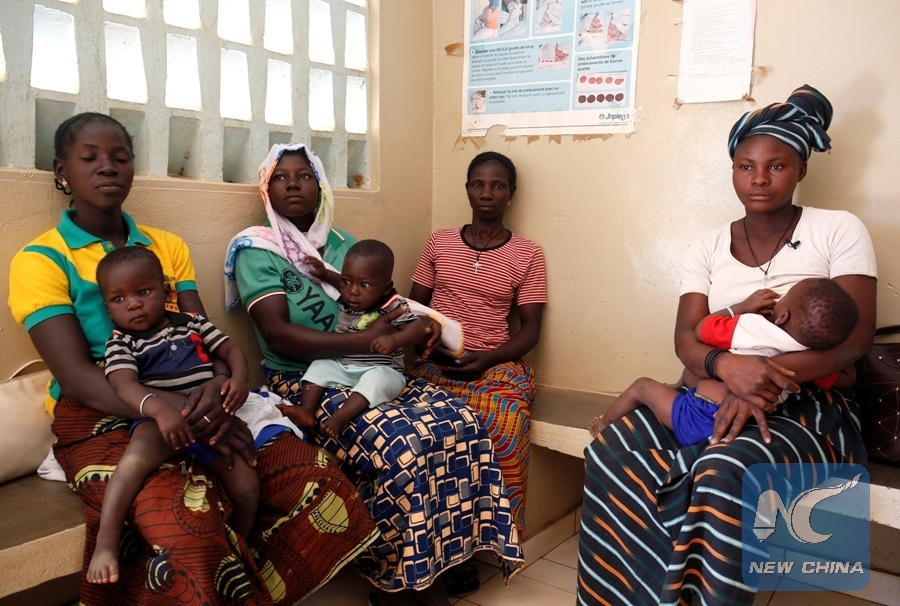
Women attend a family planning course given by a nurse at a dispensary in the village of Nedgo, near Ouagadougou, Burkina Faso, Feb. 16, 2018. (REUTERS Photo)
UNITED NATIONS, July 11 (Xinhua) -- UN Population Fund (UNFPA) chief Natalia Kanem said Wednesday some 214 million women still lack safe and effective family planning for reasons ranging from lack of information or services, to lack of support from their partners or communities.
In her message to mark World Population Day, the UNFPA executive director said this situation threatens women's "ability to build a better future for themselves, their families and their communities."
Family planning was affirmed to be a human right 50 years ago, leading to what would become the annual observation of World Population Day, which focuses attention on the impact the number of children born has on the world.
This year, Kanem took that a step further, saying "family planning is not only a matter of human rights; it is also central to women's empowerment, reducing poverty and achieving sustainable development."
"UNFPA is fully committed to continuing to support countries' efforts to uphold the right of individuals, especially women, to plan a family," she said. "We are striving to end all unmet need for voluntary family planning in developing countries, by 2030."
Recognizing this goal needs participation of governments and private sectors to achieve, she suggested that for a mere 20 cents per person annually, developed countries could close the global family planning funding gap, which she said would be "a strategic and doable investment in the world's future."
It took hundreds of thousands of years for the world population to grow to 1 billion. Then in just another 200 years or so, it grew sevenfold. In 2011, the global population reached the 7 billion mark, and today, it stands at about 7.6 billion, according to the UNFPA.
World Population Day was inspired by public interest generated by one particular date of huge significance. The UN estimated that on July 11, 1987, the world's population reached 5 billion people.
This dramatic growth of population has been driven largely by increasing numbers of people surviving to reproductive age, and has been accompanied by major changes in fertility rates, increasing urbanization and accelerating migration, according to the UNFPA.
The UNFPA helps countries identify and understand population growth trends, which are critical to development. It is also one of the world's largest funders of population data collection.

